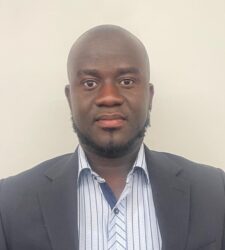SNV Ghana has organised a closeout event for its Renewable Energy Development and Acceleration Project (REDAP) in Accra. The event brought together key stakeholders in the renewable energy ecosystem in Ghana, and sought to promote wider project visibility, share results achieved and engage with relevant stakeholders to mobilise continuous support for REDAP-participating enterprises beyond closeout of the pilot phase.
The Renewable Energy Development and Acceleration Project (REDAP), a year-long support programme rolled out by SNV Netherlands Development Organisation with funding support from the Rural Development Fund (RDF), has ended with beneficiary Micro, Small and Medium Scale Enterprises (MSMEs) expressing delight at the support provided them during the implementation period.
REDAP, launched in October 2020, had a primary goal to facilitate the growth of energy businesses and sustainable energy services. In all, sixteen (16) MSMEs in the renewable energy space benefitted from the project. These include Solar Taxi, Tradeworks, Synergy Recycle and Northlite Solar Ltd.
Others are Comeph & Associates, SETECH, Bidipa, Zuriel Carbon Products, Global Bamboo Products, Gamma Energie, Nassam Brand, Translight Solar, Wen Neon, Pumptech, Nasag Lach, and Beta Construction Engineers – all operating in the renewable energy space.
Among its objectives, the project sought to improve access to efficient and suitable finance for sustainable energy businesses, build a pipeline of viable and sustainable energy MSMEs through business and market development support, and increase demand for sustainable energy services.
In pursuit of the project goal and objectives, the project implementers partnered some selected private financial institutions as well as national research, regulatory, licencing and certification institutions to train and mentor participating MSMEs in the renewable energy space in effective and sustainable business management practices and national regulatory requirements.
JA Venture Capital and Mirepa Capital supported REDAP’s implementation by providing much-needed training, coaching and investment readiness support for the beneficiary enterprises. Also, as part of the project, hundreds of Ghanaian households adopted improved cook-stoves and solar systems to enable them transition from traditional inefficient forms of energy to clean and efficient energy technologies.
Business matchmaking and market linkage interventions yielded 3 signed contracts for Northlite Solar Limited: a 120kWp PV lease project at a cost of US$280,250; a 100kWp PV lease project at a cost of US$234,000; and a 20kWp PV lease project at a cost of GH¢316,000 respectively.
Speaking at the closeout meeting organised by SNV in Accra, Odjobi Kwakye, the Project Manager of REDAP, revealed that: “The global renewable energy market, which is currently valued at over US$928billion, is expected to cross the US$1.5trillion threshold by 2025”. According to him, “This presents a huge opportunity for renewable energy businesses to tap into”.
The Project Manager further underscored the need for financial institutions to partner renewable energy companies, saying: “Generating energy from renewable sources requires huge investments…which presents opportunities for financial institutions to inject more resources into the sector”.
One key lesson learnt during the project roll-out period, according to the Project Manager, is the fact that “merely building the capacity of renewable energy enterprises, creating market linkages, stimulating awareness and demand for renewable energy technologies will not propel renewable energy enterprises growth”. Rather, providing “quality finance, investing in end-user financing and establishing a collaborative support system with key actors in the renewable energy ecosystem” are as essential in growing the sector.
On his part, Sampson Asumadu – the Chief Financial Officer (CFO) of RDF, underlined the importance of financial institutions in partnering renewable energy companies to provide the needed financial support to them. According to him, RDF “seeks to continuously promote financial access to the agriculture and renewable energy sectors through product offerings including lines of credit, credit guarantees and technical assistance”.
He emphasised the importance of REDAP to growth of RDF in the renewable energy space, saying: “The lessons learnt from this one-year project will be used to inform our approach, as they enhance our understanding of the renewable energy landscape”.
Presenting some of the key highlights of REDAP, Aaron Nyarkotey – Energy Advisor at SNV, revealed that a total of 9,829 households received Improved Cook Stoves (ICS) as part of the project, while 333 end-users adopted solar energy systems.
He also shared some lessons learnt during the roll-out period of the project, in the area of developing and making renewable energy enterprises investment-ready. According to him, “Organisational restructuring, financial reporting and audit services, regulatory compliance and business model development and commercialisation are among the key needs to be addressed to make renewable energy enterprises prepared and ready for investments”.
Solidarity messages of support were also received from the Association of Ghana Industries (AGI), Ghana Revenue Authority, Ghana Standards Authority, Ghana Enterprises Authority and the Institute of Industrial Research of the Council for Scientific and Industrial Research (CSIR-IIR).










